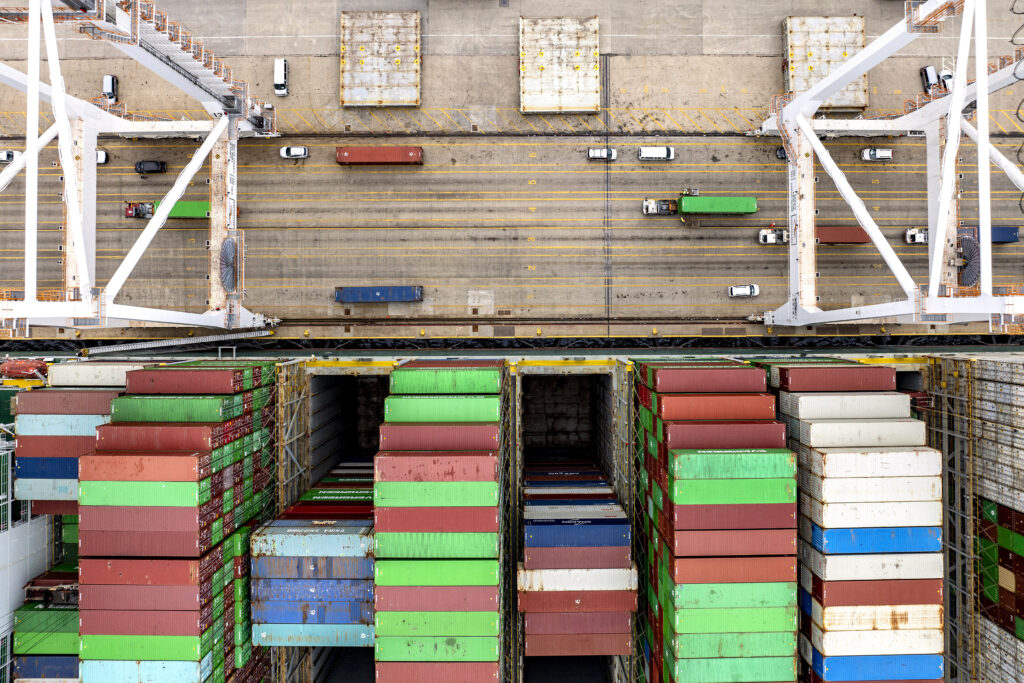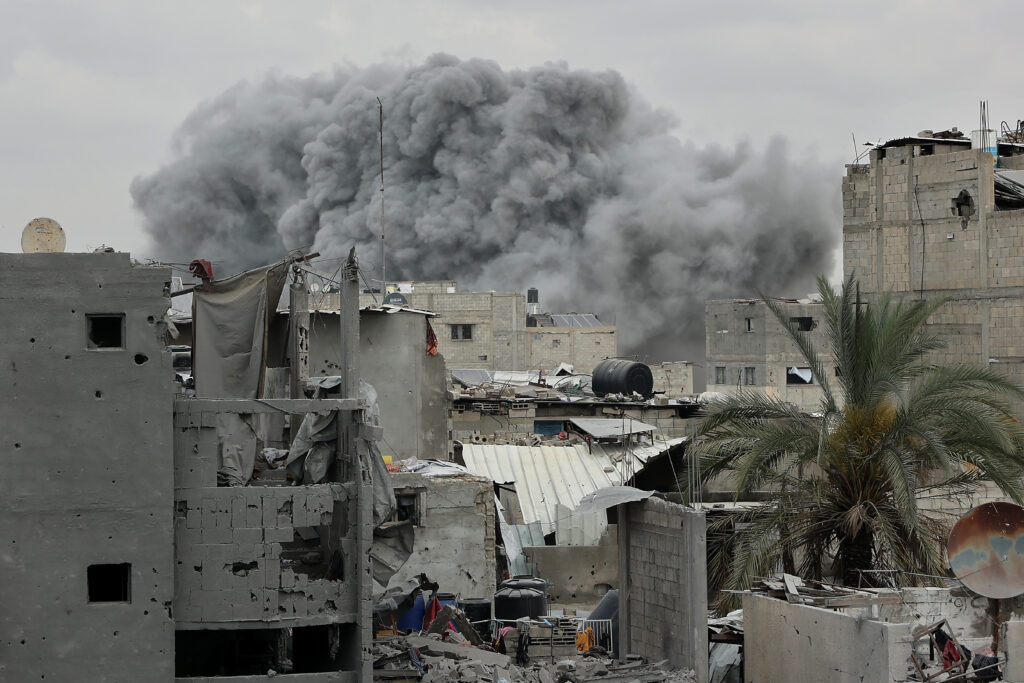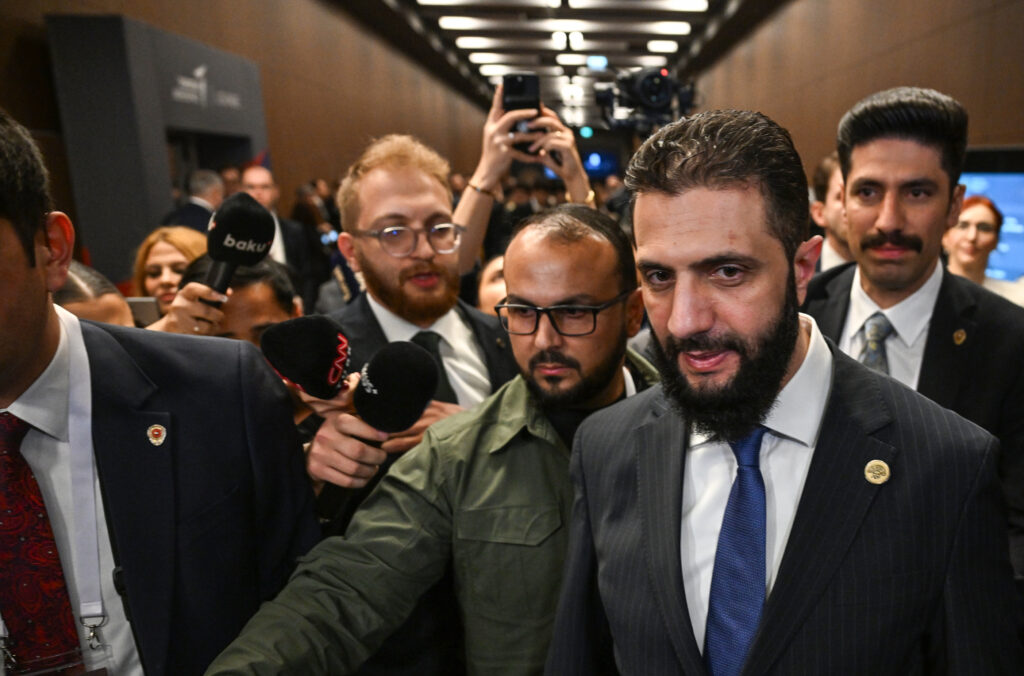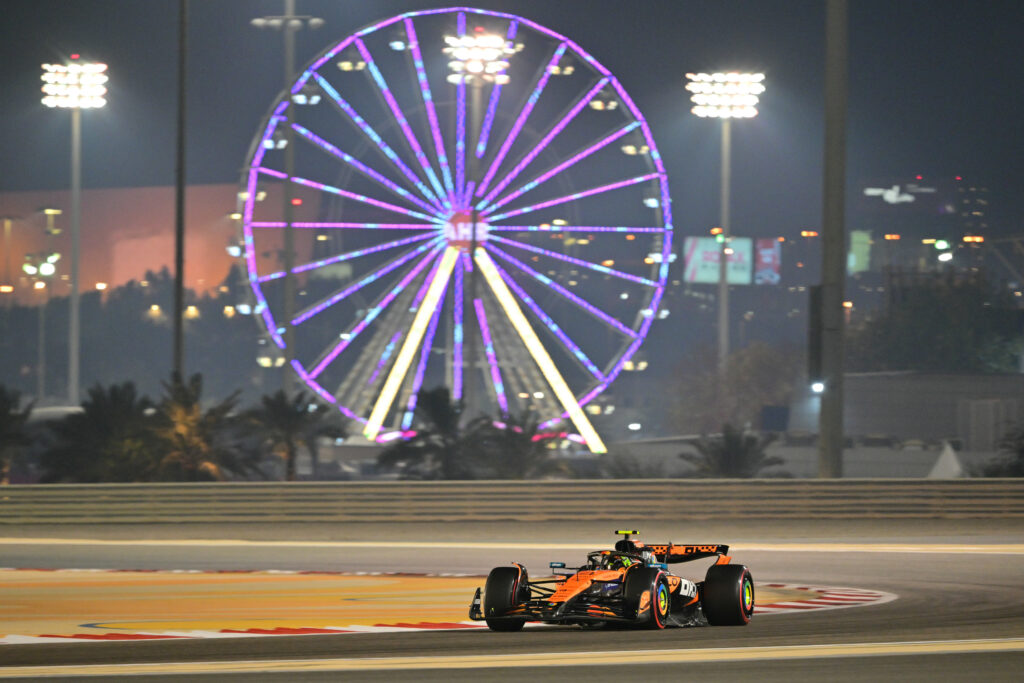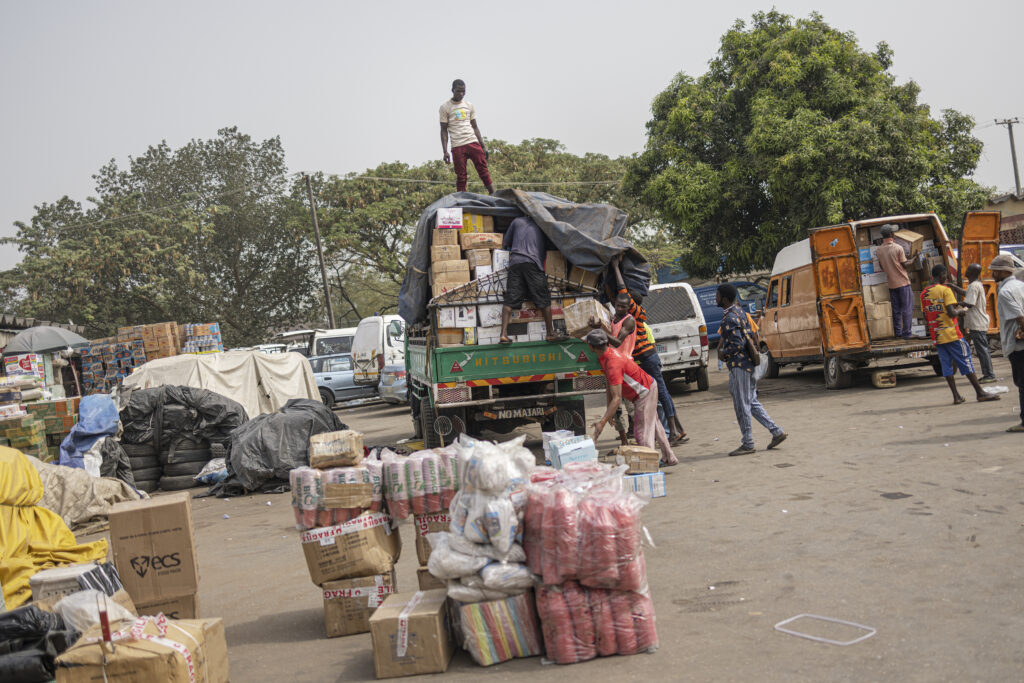AFP Asia Business
Dollar plunges, stocks wobble over trade war turmoil
Investors dumped US government bonds, the dollar tumbled and stocks seesawed Friday, capping a volatile week as President Donald Trump’s unpredictable tariff policy rattled market confidence.Trump triggered a massive market sell-off last week by announcing universal tariffs, and this week he sparked a huge but short-lived rally by pausing higher duties against scores of countries.But …
Dollar plunges, stocks wobble over trade war turmoil Read More »
Spain public broadcaster calls for ‘debate’ over Israel’s Eurovision participation
Spain’s public broadcaster said on Friday it had called for a “debate” over Israel’s participation in this year’s Eurovision Song Contest in Switzerland due to “concerns” over the situation in war-torn Gaza.RTVE has sent a letter to the European Broadcasting Union (EBU), which manages the event, “requesting a debate on the participation of Israeli public television (KAN)” in the contest, the Spanish public broadcaster said in a statement.The Swiss city of Basel will host the glitzy annual extravaganza — one of the world’s biggest live television events, which involves countries from Europe to Australia — at the St. Jakobshalle indoor arena, with the semi-finals on May 13 and 15, and the final on May 17.Public broadcasters of participating nations select the candidate to represent them, so the absence of KAN would mean there would be no Israeli performer at this year’s event.RTVE said it “reiterates its support” for Eurovision “but also acknowledges the concerns that the situation in Gaza and the participation of KAN public television are raising within Spanish civil society.”It would be appropriate for the EBU to recognise the existence of this debate and provide a forum for discussion between EBU member broadcasters on the participation of Israeli public television,” the statement added.The EBU said it appreciated “concerns and deeply held views around the current conflict in the Middle East”, but added that all its members were eligible to compete at Eurovision.”We remain in constant contact with those participating this year, including RTVE, on all aspects of the contest,” it added in a statement.- October 7 survivor -Thousands protested at last year’s contest in the Swedish city of Malmo against Israel’s participation against the backdrop of the war between Israel and Hamas in Gaza.Israeli competitor Eden Golan had to change her lyrics over their apparent references to the deadly Hamas attack against Israel on October 7, 2023, which sparked the war.A survivor of that attack will represent Israel in Basel.When Hamas militants killed more than 370 people at the Nova music festival, Yuval Raphael survived by hiding under a pile of bodies. She said she would be ready to face the kind of hostility Golan did.Finland’s public broadcaster Yle received two petitions last month demanding it push for Israel to be banned from the contest due to the war in Gaza.One was signed by more than 500 music and culture industry professionals, while a public petition was signed by over 10,000 people. Israel has won the contest four times, most recently in Lisbon in 2018.On October 7, 2023, Palestinian militants launched a cross-border attack in Israel that resulted in the deaths of more than 1,200 people, mostly civilians, and the capture of 251 hostages, according to Israeli figures.Israel’s ensuing bombardment and ground offensive in Gaza has killed nearly 51,000 people in the territory, mainly civilians, according to the health ministry in Hamas-run Gaza. The UN has deemed its figures generally reliable.
Gaza rescuers say family of 10 killed in Israel strike
Dozens of Israeli air strikes on Gaza have killed “only women and children” after a ceasefire collapsed last month, the United Nations said, as an Israeli attack in the territory’s south killed a family of 10 on Friday.A UN human rights office report also warned that expanding Israeli evacuation orders were resulting in the “forcible transfer” of people into ever-shrinking areas, raising “real concern as to the future viability of Palestinians as a group in Gaza”.The Israeli military said it was looking into the attack that killed members of the same family in Khan Yunis, adding separately that it hit around 40 “terror targets” across the territory over the previous day.Israel resumed its Gaza strikes on March 18, ending a two-month ceasefire with Hamas.Since then, more than 1,500 people have been killed, according to the health ministry in the Hamas-run territory to which Israel cut off aid more than a month ago.”Ten people, including seven children, were brought to the hospital as martyrs following an Israeli air strike that targeted the Farra family home in central Khan Yunis,” civil defence spokesperson Mahmud Bassal told AFP.AFP footage of the aftermath showed several bodies wrapped in white shrouds and blankets, and the mangled concrete slabs and twisted metal of the family’s home.Late on Friday, the civil defence reported that at least four more people were killed in Israeli attacks in Gaza, while the military said it shot dead “two terrorists” who fired at troops in southern Gaza.The military also reported it intercepted a drone approaching from the east, but did not give details of where it had been launched from.Since the war in Gaza erupted, Yemen’s Iran-backed Huthi rebels have repeatedly launched drones and missiles at Israel in what they say is solidarity with Palestinians in Gaza.- Living in cemeteries -Reacting to Friday’s strike on the family home, Turkish President Recep Tayyip Erdogan denounced Israel at a forum, saying: “If this is not barbarism, I ask you, what is it?”Israel’s military issued new evacuation warnings to residents in areas of northern and southern Gaza ahead of new offensives.”Several medical facilities and storage sites containing critical supplies are located within the newly designated displacement zones,” the UN Office for Coordination of Humanitarian Affairs said.OCHA warned that this could have “life-threatening consequences for people in urgent need of care”.Many displaced Gazans are living in tents in cemeteries.”We couldn’t find any place to live … That’s why we were forced to sit on top of graves,” Ibtisam Abu Ghanima told AFP at a cemetery in Gaza City.”The dead have become better off than the living. On top of that, there’s the awful smell, rats come at us, reptiles too, and we are dying,” she said.The UN decried the impact of Israel’s ongoing strikes, finding that “a large percentage of fatalities are children and women”.”Between 18 March and 9 April 2025, there were some 224 incidents of Israeli strikes on residential buildings and tents for internally displaced people,” the UN human rights office said in Geneva.”In some 36 strikes about which the UN Human Rights Office corroborated information, the fatalities recorded so far were only women and children.”Israel’s military has repeatedly said Palestinian militants often hide among civilians, a charge Hamas denies.The war broke out after Hamas’s October 2023 attack on Israel resulted in the deaths of 1,218 people, mostly civilians, according to an AFP tally based on Israeli official figures.Militants also took 251 hostages, 58 of whom are still held in Gaza, including 34 the Israeli military says are dead.Gaza’s health ministry said Friday at least 1,542 Palestinians have been killed since March 18, taking the overall death toll since the war began to 50,912.- Ceasefire efforts -In a Passover holiday message, Israeli Prime Minister Benjamin Netanyahu reiterated his pledge to bring the remaining captives home.US President Donald Trump also told a cabinet meeting Thursday that “we’re getting close to getting them back”.Trump’s envoy Steve Witkoff was quoted in an Israeli media report as saying “a very serious deal is taking shape, it’s a matter of days”.Israeli media reported that Egypt and Israel had exchanged draft documents on a ceasefire-hostage release deal.The Times of Israel said Egypt’s proposal would mean eight living hostages and eight bodies handed over in exchange for a truce of between 40 and 70 days and a large number of Palestinian prisoner releases.A Hamas leader who declined to be identified told journalists the group “is open to any new proposal that would achieve a ceasefire, withdraw the occupation’s forces and end the suffering of the Palestinian people”.
Erdogan accuses Israel of seeking to ‘dynamite’ Syria ‘revolution’
Turkish President Recep Tayyip Erdogan on Friday accused Israel of sowing divisions in Syria in a bid to “dynamite” the “revolution” that toppled strongman Bashar al-Assad.Turkey is a key backer of Syria’s new leader Ahmed al-Sharaa whose Islamist group Hayat Tahrir al-Sham (HTS) led the rebel coalition that ousted Assad in December.”Israel is trying to dynamite the December 8 revolution by stirring up ethnic and religious affiliations and turning minorities in Syria against the government,” Erdogan told a forum in the southern Mediterranean resort of Antalya.Syria’s Sharaa, who arrived in Antalya earlier in the day, met with Erdogan on the sidelines of the diplomacy forum. The Turkish presidency shared a photo of the two men shaking hands, in a post on X. This was Sharaa’s second trip to Turkey as leader after Erdogan welcomed him to the capital Ankara in February. The new Syrian leader also met Qatar’s foreign minister.Erdogan’s latest comments came as officials from Turkey and Israel began talks this week aimed at easing tensions over Syria. The two regional powers are jostling for influence in the politically fragile country. Israel has launched air strikes and ground incursions to keep Syrian forces away from its border, sparking criticism from Ankara.According to one Syrian source close to the matter, Turkey wants to set up “military positions” in Syria — including one “inside the T-4 base,” a military airbase in Homs province targeted by Israeli strikes last week.- ‘Manage tensions’-Turkey’s first technical meeting with Israel took place in Azerbaijan on Wednesday, according to a Turkish defence ministry source.In an interview the same day, Turkish Foreign Minister Hakan Fidan underlined that this did not mean the two sides were moving towards normalising ties strained over Israel’s war with Hamas in Gaza.Aron Lund, of the Century International think tank, underlined that point in comments to AFP. Israel and Turkey “are not going to come to an agreement about what should be done in Syria,” he said.”And they’re both going to be active in Syria militarily one way or the other,” he added.But hopefully the talks “will at least find ways for them to co-exist and manage their tensions somehow without that spiralling into something really destabilising”, said Lund.Ankara’s influence on Syria’s new authorities has worried Israel, which considers Sharaa’s forces to be jihadists.It has launched hundreds of strikes on military sites in Syria since Assad’s downfall.”Israel is turning into a problematic country that directly threatens the stability of the region, especially with its attacks on Lebanon and Syria,” Erdogan told the forum. The Turkish leader said the Syrian “revolution” offered an opportunity to bring stability to the region.”We will not allow Syria to be dragged into a new vortex of instability,” said Erdogan.Israeli strikes were denting efforts to combat the Islamic State (IS) jihadist group, he added. Turkey has suspended all trade with Israel, Erdogan accusing Prime Minister Benjamin Netanyahu of “genocide” in Gaza since Hamas’s October 7, 2023 attack on Israel began the war.And on Friday, he condemned Israel’s “barbarism” after a pre-dawn air strike that officials in Gaza said killed 10 members of the same family.”Just this morning, 10 people, including seven children, from the same family were martyred in Khan Yunis. If this is not barbarism, I ask you, what is it?” he asked at the diplomacy forum.
McLarens dominate Bahrain practice, Verstappen rues ‘too slow’ Red Bull
McLaren were streets ahead of the pack in second practice at the Bahrain Grand Prix on Friday leaving Max Verstappen lamenting his “too slow” Red Bull.Oscar Piastri posted a quickest lap of 1min 30.505s with his teammate Lando Norris only a tenth of a second adrift.Mercedes’ George Russell took third, albeit over five tenths of a second back in an ominous display of force by McLaren at a track where the Bahraini-backed team have yet to win in 21 visits.Verstappen, who moved to within one point of championship leader Norris after his win in Japan last weekend, struggled to make any significant impact, the four-time world champion trailing in seventh, close to one second back.”We’re just too slow basically every lap, and it was honestly not a lot of fun out there in the long run,” lamented the Dutchman. “The gap was quite massive,” he added.To add insult to injury immediately in front of Verstappen were two rookies – Mercedes’ Kimi Antonelli and RB’s Isack Hadjar, who both did brilliantly to finish fifth and sixth.Red Bull’s plight was not helped by the sight of Yuki Tsunoda coming in 18th, six places behind RB’s Liam Lawson, the driver he replaced at Red Bull last time out.Norris was keeping his feet firmly on the ground, suggesting the bare results didn’t tell the whole story.”Everyone just looks at the timesheets,” the Briton said.”They have no idea on the information on who turns up (the engine).”Russell though was in no doubt that McLaren had an edge, saying Piastri and Norris were “a big step ahead”.Second practice at the Bahrain International Circuit got underway as the sun set to make the session more meaningful than opening pracice held in the searing mid-afternoon heat.With the floodlights illuminating the track to give like-for-like conditions with Saturday’s qualifying and Sunday’s race it placed extra importance on the 60 minutes evening run out.Verstappen, Russell and Charles Leclerc were among six established drivers to lend their cars to rookies to gain valuable experience in FP1 as per the sporting guidelines.- ‘The car is jumping’ -Leclerc’s teammate Lewis Hamilton, in the upgraded Ferrari kitted out with a new floor panel, put his foot down early to lead the timesheets.Verstappen got his weekend up and running but was soon grumbling on the team radio: “The ride is very bad, the car is jumping a lot.”Things were worse over with Fernando Alonso, who told his Aston Martin engineer: “Change the steering wheel” as the veteran Spaniard headed back to the pits, the wheel literally coming off in his hands.A human wall of Aston mechanics blocked any inquisitive competitors as they frantically worked to resolve the unusual and worrying issue.Back on track Leclerc (who took fourth) pushed his teammate Hamilton (eighth) off the top of the time sheets to give early encouragement to the scuderia.With plenty of action on track as teams tried to cram in effectively three practice sessions in one – Saturday’s third session is also unrepresentative being held in daytime – the Ferrari duo dropped down the field as the Mclarens rose to the surface.As Alonso, who will be having his 50th race for Aston on Sunday, rejoined the circuit, there was no change at the top as McLaren set out their stall for the business part of the weekend.Earlier teams took the opportunity to use ‘FP1’ to give a half dozen rookies a shot as a ‘Friday driver’ as per the governing body’s guidelines.Verstappen had some down time with Ayumua Iwasa taking the wheel of his Red Bull.Luke Browning stepped into Carlos Sainz’s Williams, ut had scary moment with his temporary teammate Alex Albon, the pair coming close with a quarter of an hour left of the session.The stewards investigated the incident, with Albon deemed guilty of impeding Browning and given a smack on the wrist with a four-figure fine.
McLaren dominate Bahrain practice as Verstappen struggles
Oscar Piastri topped the times as McLaren dominated second practice at the Bahrain Grand Prix on Friday with Max Verstappen struggling to make an impact in his Red Bull.Piastri posted a quickest lap of 1min 30.505s with his teammate Lando Norris only a tenth of a second adrift.The chasing pack was led by the Mercedes of George Russell albeit over five tenths of a second back in an ominous display of force by McLaren at a track where the Bahraini-backed team have yet to win in 21 visits.Verstappen, who moved to within one point of championship leader Norris after his win in Japan last weekend, was given plenty of food for thought ahead of this fourth race of the season as he trailed in seventh, close to one second back.To add insult to injury immediately in front of the four-time world champion were two rookies – Mercedes’ Kimi Antonelli and RB’s Isack Hadjar, who both did brilliantly to finish fifth and sixth.Red Bull’s plight was not helped by the sight of Yuki Tsunoda coming in 18th, six places behind RB’s Liam Lawson, the driver he replaced at Red Bull last time out.Second practice at the Bahrain International Circuit got underway as the sun set to make the session more meaningful than opening practice held in the searing mid-afternoon heat.With the floodlights illuminating the track to give like-for-like conditions with Saturday’s qualifying and Sunday’s race it placed extra importance on the 60 minutes evening run out.Verstappen, Russell and Charles Leclerc were among six established drivers to lend their cars to rookies to gain valuable experience in FP1 as per the sporting guidelines.- ‘The car is jumping’ -Leclerc’s teammate Lewis Hamilton, in the upgraded Ferrari kitted out with a new floor panel and a record five-time winner in Bahrain, put his foot down early to lead the timesheets.Verstappen got his weekend up and running but was soon grumbling on the team radio: “The ride is very bad, the car is jumping a lot.”Things were worse over with Fernando Alonso, who told his Aston Martin engineer: “Change the steering wheel” as the veteran Spaniard headed back to the pits, the wheel literally coming off in his hands.A human wall of Aston mechanics blocked any inquisitive competitors as they frantically worked to resolve the unusual and worrying issue.Back on track Leclerc pushed his teammate Hamilton off the top of the time sheets to give early encouragement to the scuderia.With plenty of action on track as teams tried to cram in effectively three practice sessions in one – Saturday’s third session is also unrepresentative being held in daytime – the Ferrari duo dropped down the field as the Mclarens rose to the surface.Piastri and Norris both stepped on the gas to pull well clear.As Alonso, who will be having his 50th race for Aston on Sunday, rejoined the circuit, there was no change at the top as McLaren set out their stall for the business part of the weekend.Earlier teams took the opportunity to use ‘FP1’ to give a half dozen rookies a shot as a ‘Friday driver’ as per the governing body’s guidelines.Verstappen had some down time with Ayumua Iwasa taking the wheel of his Red Bull.Dino Beganovic was handed the keys to Leclerc’s Ferrari.Other new faces were Fred Vesti (in for Russell), Luke Browning (Williams/Carlos Sainz), Felipe Drugovich (Alonso) and Ryo Hirakawa, in for Ollie Bearman at Haas.Browning had a scary moment with his temporary teammate Alex Albon, the pair coming close with a quarter of an hour left of the session.The stewards investigated the incident, with Albon deemed guilty of impeding Browning and given a smack on the wrist with a four-figure fine.
African Development Bank chief warns of tariff ‘shock wave’
An onslaught of tariffs by the United States will send “shock waves” through African economies, the president of the African Development Bank said on Friday, warning of reduced trade and higher debt-servicing costs.The comments come as US President Donald Trump has upended global markets by pushing — and then retracting — a slew of tariffs …
African Development Bank chief warns of tariff ‘shock wave’ Read More »

